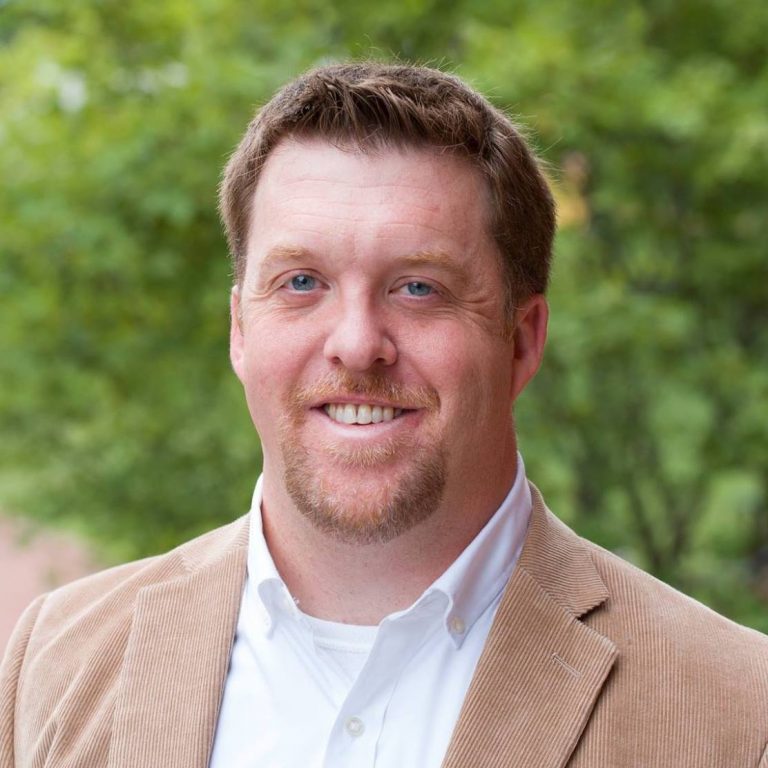You have /5 articles left.
Sign up for a free account or log in.
Joshua Eyler is all over Inside Higher Ed. A quick search for “Eyler” on Inside Higher Ed revealed the following highlights:
- Why ‘How Humans Learn’ Is the Book I’ve Been Waiting For (May 2, 2021)
- 3 Questions for Joshua R. Eyler (Sept. 25, 2019)
- Q&A With Joshua Eyler on 'How Humans Learn' (Nov. 19, 2018)
- What We Mean When We Talk About Lectures (Oct. 16, 2018)
- 4 Questions for Rice's Joshua Eyler (May 9, 2018)
- Where Should We Talk About Learning Innovation and Postsecondary Change? (May 2, 2018)
- Against Student Shaming (March 29, 2017)
Google comes back with 191,000 hits for “Joshua Eyler” -- although at least half of these must be other Joshuas.
To continue the trend, I wanted to catch up with Josh again to get his thought about teaching and learning at this very weird time in higher education.
Q: Since you wrote How Humans Learn, you moved from Rice to the University of Mississippi. Tell us about your role at Ole Miss, before, during and maybe projecting to after the pandemic?
A: I am the director of faculty development in our Center for Excellence in Teaching and Learning and also the director of the ThinkForward QEP, a universitywide initiative designed to help students develop better critical thinking skills in introductory-level classes.
Prior to the pandemic, my work was a combination of workshops, consultations, committees, etc. -- all the things that we typically do in the realm of educational development. Once the pandemic hit, though, I was part of our Keep Teaching team (comprised of colleagues from our CETL, Academic Innovations, Outreach and IT). Although close collaborations and work with faculty remained central to what I did as part of Keep Teaching, I also helped to design and lead the emergency transition workshops for remote learning and a campuswide learning community on resilient pedagogy, I wrote the temporary pass-fail policy for students, and -- in short -- I was asked to complete lots of big and small ad hoc projects.
I think over the next few months, my role will begin to look more and more similar to the way it was before the pandemic, but I will continue to advocate for higher ed to reflect on, learn from and use the lessons of the pandemic to carve out a more equitable future.
Q: In How Humans Learn, you are critical of many aspects of online education. Has your thinking evolved at all since you wrote the book? Going forward from the pandemic, how do you expect the role of online learning to change at predominantly residential institutions?
A: This is a big question, and one for which I have only some fragments of answers. First, to clarify, my skepticism about online learning in the book was directed primarily at cookie-cutter, template-driven approaches to online courses, not the innovative teaching that many folks are doing in this area. Second, I also want to note that just because a class is taught in person does not automatically mean that it is super interactive and engaging. It means that conditions are ripe for engagement, but it does not mean that active learning is necessarily happening.
OK, now that I have that out in the open (whew!), I have to say that I still stand behind what I wrote about sociality and learning. What matters most is social presence and creating environments where students can interact and engage with the instructor and with each other. It is obviously possible to do this work in online spaces, though it is extraordinarily challenging and I don’t think we have consensus from the research on the role of the screen in mediating these interactions yet. Also, much of what we are seeing and hearing across higher ed is that students and faculty want to be together in the same place again, that this is something many folks deeply missed during the pandemic.
On the other hand, online learning has proven in some instances to be more equitable for some groups of students (students with disabilities, for example) and less equitable for others (those without easy access to the internet, for example). So there is no consistent narrative about which way higher ed will go with all of this. My best guesses about what will happen with online learning at residential institutions going forward are: a) there are likely to be larger numbers of hybrid courses than we’ve seen before and b) people will integrate the technologies they discovered or refined during the pandemic into their in-person teaching.
Q: Are you writing another book?
A: The answer to that question is yes! It’s tentatively called Failing Our Children: How Grades Stand in the Way of Success and Emotional Well-Being. It’s a bird's-eye view of the many problems with the traditional grading practices common in educational systems, and I’m writing it for parents and educators of all levels. I started thinking about this topic when I was writing the “Failure” chapter in How Humans Learn, and it grew from there.








